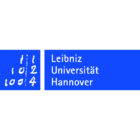Faculty of Architecture and Landscape

Faculty of Architecture and Landscape
Herrenhäuser Str. 8
D-30419 Hannover
DE
N 52° 23' 32.94'', E 52° 23' 32.94''
http://www.archland.uni-hannover.de/en
Dean for research
Master: German/English, German, English
The Faculty of Architecture and Landscape Sciences in Hannover focuses on a design-centred approach to combine teaching and research at an international level of excellence. The school offers students, researchers and lectureres the outstanding opportunity to engage in an interdisciplinary range from architecture and urban planning to landscape architecture and environmental planning. In the research focus 'Future Habitats', shaping spaces of sustainability is the basis to innovate design research in architecture and the built environment.
The Faculty of Architecture and Landscape Sciences of Leibniz University Hannover is situated in the north of Germany, in the middle between Berlin, Hamburg, and Cologne. The Faculty is situated near the city centre of Hannover, directly at the Herrenhausen Gardens, one of Europe's most famous baroque parks. The Faculty building is an exceptional example of Brutalist architecture of the 1960es in the Bauhaus tradition.
1300 students (840 Bachelor, 420 Master, 40 PhD), 11% of foreign students.
220 staff members (170 full-time and approx. 50 visiting lecturers and critics).
Students can benefit from exeptional learning and working facilities: the Faculty can rely on outstanding exhibition and event spaces, workshops and studios with about 1,000 student workplaces, equipped with high-speed internet and all digital services of the the LUH central IT services LUIS. The technical facilities comprehend workshops and labs for modelling and prototyping in different materials (wood, plastics, metal), a professional photo studio, and in particular up-to-date computer pools and digital labs for modelling, digital manufacturing, robotics and augmented reality. The Faculty's own International Office supports incoming students and manages more than 80 agreements for international cooperation.
See: https://www.archland.uni-hannover.de/en/studies/before-your-studies/
Tuition fees
There are no tuition fees.
A semester fee provides access to student services, sports, and a semester ticket for public transport in the whole State of Niedersachsen including Hamburg.
Application Deadline
yearly 15th July
Master, Architecture and Urban Planning, 2 years, MSc, German/English, 120,
Bachelor, Landscape Architecture and Environmental Planning, 3 years, BSc, German, 180,
Master, Landscape Architecture, 2 years, MSc, German, 120,
Master, Landscape Architecture EMILA, 2 years, MSc, English, 120,
Master, Environmental Planning and Territorial Development, 2 years, MSc, German/English, 120,
The Faculty offers the 3-year programme BSc in Architecture (in German) and the 2-year programme MSc in Architecture and Urban Planning (in German/English) with different specialisations, as well as the 3-year programme BSc in Landscape Architecture and Environmental Planning and the 2-year programmes MSc in Landscape Architecure (in German), the 2-year programme European Master in Landscape Architecture (in English), and the 2-year programme MSc in Environmental Planning and Territorial Development (in German/English).
The BSc Architecture focuses on a design-centred approach to architecture, linking architectural design and typology with building construction and technology, digital design, media, arts for architecture, history and theory of architecture, city and society, and urban design and planning. Based on study projects, students learn in six semesters fundamental knowledge and skills to tackle design and realisation processes, enriched by a broad range of electives and concluding with a thesis in different fields of interest and specialisation.
The M.Sc. Architecture and Urban Planning offers a wide range of choice in different specialisation tracks, inspired by a comprehensive and design-centred vocation. The concept of study projects and the development of individual learning biographies are at the core of the programme, supported by a special mentoring programme. The programme foresees to expand knowledge and abilities in five areas of competence, offering combination and specialisation: architectural design, building construction, digital design, media, arts for architecture, history and theory of architecture, and urban design and planning. Besides of the professional qualification in architecture, also the qualification in urban planning is possible. Electives provide a interdisciplinary extensions, starting from landscape architecture and environmental planning to other faculties of Leibniz University Hannover. The programme strongly supports at least one semester abroad and culminates in a final thesis project.
The Faculty offers doctoral studies in a full scope of subject areas, from architectural design and building construction to digital methods, media, and arts in architecture, history and theory of architecture, and urban design and planning – as well as in landscape architecture and environmental planning. The degree title depends on the subject area (doctor of engineering, doctor of philosophy, or doctor of natural sciences). Doctoral studies are supported by seminars and workshop for thematic and methodological issues, and in several doctoral colleges in the different subjects. Additionally, the Graduate Academy of Leibniz University Hannover is offering a broad range of soft skills, entrepreneurial and career development.
FUTURE HABITATS is the central focus of the faculty’s scientific and artistic research in the spatial disciplines of architecture, urban design and planning, landscape architecture and environmental planning. In Future Habitats, design-orientation is the basis for new knowledge and for manifest innovation in architecture and the built environment, answering to the challenges of climate change, digitalisation and inclusiveness. Focussing on design-based research, the Faculty is active in the international reorientation of architectural disciplines. Currently, the Faculty works in four interlinked lines of research on Future Habitats:
- Reflexive Design
- Planning for Transformation
- Integrated Technologies
- Cultural Heritage Valorisation





